
The Macara Baronetcy, of Ardmore in St Anne-on-the-Sea in the County of Lancaster, was a title in the Baronetage of the United Kingdom. It was created in 1911 for the Lancashire cotton-spinner, Charles Macara. The title became extinct upon the death of the fourth Baronet in Dudley in 1986.

The Austin Baronetcy, of Red Hill in the parish of Castleford in the West Riding of the County of York, is a title in the Baronetage of the United Kingdom. It was created on 16 July 1894 for John Austin, Liberal member of parliament for Osgoldcross.
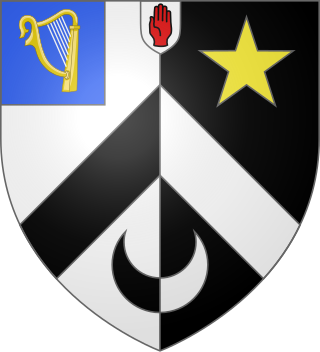
The Alexander, later Cable-Alexander Baronetcy, of the City of Dublin, is a title in the Baronetage of the United Kingdom. It was created on 11 December 1809 for William Alexander, Lord Mayor of Dublin. The second Baronet was a Director of the Bank of Ireland. The third Baronet was Attorney-General to Albert Edward, Prince of Wales, later Edward VII. The seventh Baronet assumed in 1931 by deed poll the additional surname of Cable. As of 31 December 2013 the present Baronet has not successfully proven his succession and is therefore not on the Official Roll of the Baronetage, with the baronetcy considered dormant.
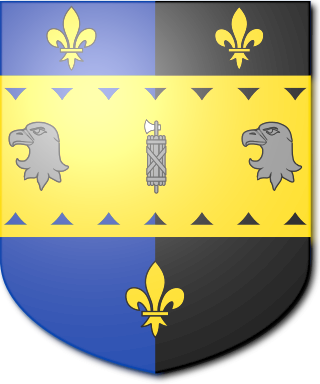
The Whitehead Baronetcy, of Highfield House in Catford Bridge in the County of Kent, is a title in the Baronetage of the United Kingdom. It was created on 26 November 1889 for James Whitehead, Lord Mayor of London between 1888 and 1889 and later member of parliament for Leicester. His younger son, the third baronet, was also a Member of Parliament.
The Langham Baronetcy, of Cottesbrooke in the County of Northampton, is a title in the Baronetage of England. It was created on 7 June 1660 for John Langham, Member of Parliament for the City of London in 1654 and for Southwark in 1660 and 1661. The second Baronet was Member of Parliament for Northamptonshire and Northampton while the third Baronet sat for Northampton. The seventh Baronet was Member of Parliament for Northamptonshire. The tenth Baronet represented St Germans in the House of Commons. The thirteenth Baronet was a photographer, ornithologist and entomologist and served as High Sheriff of County Fermanagh in 1930.

There have been two baronetcies created for the Guise family, one in the Baronetage of England and one in the Baronetage of Great Britain. The latter creation is extant as of 2014.

The Broadbent Baronetcy, of Longwood in the Parish of Huddersfield in the West Riding of the County of York, and of Brook Street, in the Parish of St George Hanover Square in the County of London, is a title in the Baronetage of the United Kingdom. It was created on 10 August 1893 for the noted physician William Broadbent. The title descended from father to son until the death of his grandson, the third Baronet, in 1987. The late Baronet was succeeded by his first cousin once removed, the fourth Baronet. He was the grandson of Walter Broadbent, third son of the first Baronet.

The Lowe Baronetcy, of Edgbaston in the City of Birmingham, is a title in the Baronetage of the United Kingdom. It was created on 30 January 1918 for Francis Lowe, Conservative Member of Parliament for Edgbaston from 1898 to 1929.

The Magnus Baronetcy, of Tangley Hill in Wonersh in the County of Surrey, is a title in the Baronetage of the United Kingdom. It was created on 22 June 1917 for the educationalist and Conservative politician Philip Magnus. He represented London University in the House of Commons from 1906 to 1922. He was succeeded by his grandson, the second Baronet, who was a historian and biographer. In 1951 he assumed by deed poll the additional surname of Allcroft. He died childless and was succeeded by his nephew, the third Baronet and present holder of the title.

The Peek Baronetcy, of Rousdon in the County of Devon, is a title in the Baronetage of the United Kingdom. It was created on 13 May 1874 for Henry Peek. He was an importer of spices, tea and other groceries, a philanthropist and Conservative Member of Parliament for Surrey Mid. The second Baronet was an astronomer and meteorologist; the third Baronet was high sheriff of Devon in 1912.

The Macgregor Baronetcy, of Savile Row in the County of Middlesex, is a title in the Baronetage of the United Kingdom. It was created on 17 March 1828 for Patrick Macgregor, Serjeant-Surgeon to King George IV. Charles Reginald Macgregor (1847–1902), second son of the third Baronet, was a Brigadier-General in the Army.

The Feilden Baronetcy, of Feniscowles in the County Palatine of Lancaster, is a title in the Baronetage of the United Kingdom. It was created on 21 July 1846 for William Feilden, Member of Parliament for Blackburn between 1832 and 1847. He sat as a Liberal from 1832 to 1841 then as a Conservative from then until 1847.
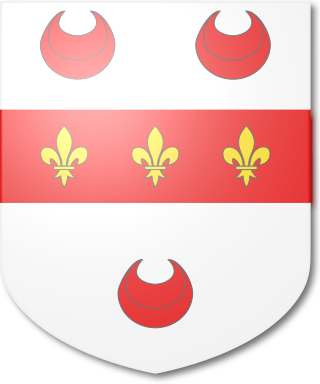
The Oakeley Baronetcy, of Shrewsbury, is a title in the Baronetage of Great Britain. It was created on 5 June 1790 for the Indian administrator Charles Oakeley. He served as Governor of Madras from 1790 to 1794. Frederick Oakeley was the second son of the first Baronet.
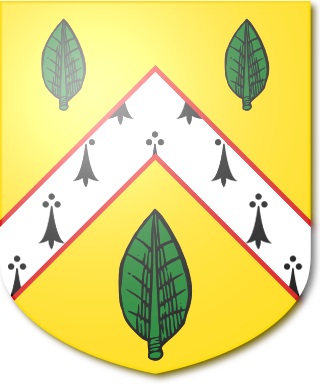
The Couper Baronetcy is a title in the Baronetage of the United Kingdom. It was created on 23 June 1841 for George Couper. He was a colonel in the Army and fought in the Peninsular War, served as Military Secretary to the Governor Generals of Canada, Sir James Kempt and Lord Durham, and was Comptroller of the Household and Equerry to Her Royal Highness the Duchess of Kent. The second Baronet was an administrator in India and served as Governor of the North-West Provinces between 1877 and 1882. Another member of the family to gain distinction was James Kempt Couper, second son of the first Baronet. He was a general in the Army.

The Farrington Baronetcy, of Blackheath in the County of Kent, is a title in the Baronetage of the United Kingdom. It was created on 2 December 1818 for General Sir Anthony Farrington, 1st Baronet.

The Levinge Baronetcy, of High Park in the County of Westmeath, is a title in the Baronetage of Ireland. It was created on 26 October 1704 for Richard Levinge, Speaker of the Irish House of Commons and Lord Chief Justice of the Irish Court of Common Pleas. The seventh Baronet sat as Liberal Member of Parliament for Westmeath from 1857 to 1865.
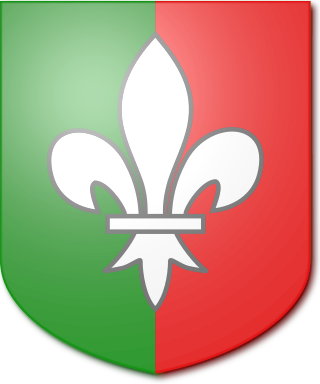
The ffolkes Baronetcy, of Hillington in the County of Norfolk, is a title in the Baronetage of Great Britain. It was created on 26 May 1774 for Martin ffolkes, FRS later High Sheriff of Norfolk and Member of Parliament for King's Lynn. The second Baronet represented Norfolk and Norfolk West in the House of Commons while the third Baronet represented King's Lynn. The fifth Baronet was Honorary Chaplain to Queen Victoria, Chaplain-in-Ordinary to Edward VII and George V and Chaplain to Edward VIII and George VI.

The Milman Baronetcy, of Levaton-in-Woodland in the County of Devon, is a title in the Baronetage of Great Britain. It was created on 28 November 1800 for Francis Milman, Physician-in-Ordinary to King George III and President of the Royal College of Physicians. The seventh Baronet was a brigadier-general in the British Army.

The Fleming, later le Fleming Baronetcy, of Rydal in the County of Westmorland, is a title in the Baronetage of England. It was created on 4 October 1705 for William Fleming, Member of Parliament for Westmorland. The second Baronet was Bishop of Carlisle. The third Baronet represented Cumberland in the British House of Commons. The fourth Baronet was Member of Parliament for Westmorland. He assumed the surname of le Fleming, an ancient version of the family surname. This version of the surname has also been borne by the Baronets from the seventh Baronet onwards. The sixth Baronet, an ordained priest, served as Rector of Windermere.

The Robinson Baronetcy, of Hawthornden, Wynberg, in the Cape Province of South Africa, and Dudley House in the City of Westminster, was created in the Baronetage of the United Kingdom on 27 July 1908 for the South African mining magnate Joseph Robinson. He was nominated for a peerage in 1922 but declined the honour. The second Baronet was a member of the Parliament of South Africa.



















